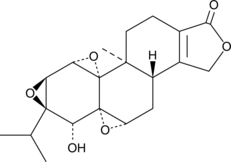In fact, a Butenafine hydrochloride recent study using a chronic model of alcohol exposure in rats reported enhanced learning and memory in rats following lower levels of chronic alcohol exposure, but reduced learning and memory at higher levels. However, to our knowledge, there is little evidence of enhanced learning and memory in humans following excessive and repeated episodes of binge-like alcohol exposure. In contrast, we suggest that the CIE-induced alterations in STDP we observed here are an aberrant homeostatic response. This change may lead to aberrant metaplasticity of NMDAR dependent synaptic plasticity, which could promote dysfunctional reorganization of prefrontal neuronal networks. The PFC mediates executive functions entailing the coordination, manipulation, and flexible use of information from multiple memory systems. Reversal learning requires flexible switching between cues within a particular stimulus dimension, and it invokes multiple executive functions, including attention, working memory and response inhibition. Perseverative errors serve as an index of how readily animals are able to inhibit the use of the now incorrect strategy and instead attend to previously irrelevant stimuli in order to obtain a goal. Distinct regions of the PFC play a critical role in facilitating different forms of behavioral flexibility. Lesions or blockade of NMDARs in the mPFC has been shown to impair set-shifting and produce a selective increase in perseverative errors, whereas the learning and maintenance of a new strategy remains unaffected, indicating that the mPFC plays a selective role in suppressing the use of a previously relevant but now incorrect strategy. In contrast, reversal learning is impaired by lesions of the orbitofrontal region of the PFC, which have no effect on set-shifting functions. Floresco and Magyar have argued that LOUREIRIN-B attentional set-shifting is a more complex process than reversal learning. This is because successful attentional set-shifting requires both the suppression of a previously learned strategy and attending to a previously irrelevant stimulus, thus requiring that attention be paid to multiple aspects of the environment. In the present study, we found a dissociation of the effects of CIE on these behavioral measures of cognitive control, suggesting that alcohol exposure disrupts the ability to shift between attentional sets, but does not interfere with hierarchically less complex reversal learning. The CIE-induced deficit in set-shifting was the result of increased perseverative responding and was not due to impairment in the initial acquisition of either a  response or visual discrimination. Thus these findings are consistent with the idea that CIE exposure reduces the ability of the mPFC to flexibly modulate behavior during changing environmental situations that require increased attentional control. Medial PFC networks control executive functions and behavioral flexibility, and in humans they may regulate cognitive control over alcohol intake. Thus the CIEinduced changes in glutamatergic transmission in mPFC pyramidal cells that we describe here may contribute to the cognitive impairments and loss of behavioral control seen in alcoholdependent subjects. On the day following turn bias, mice were trained on a response discrimination task. For this task, the mice were required to always turn in the opposite direction of its turn bias to obtain reward. Mice started from one of 3 arms to discourage them from using an allocentric spatial strategy to locate the food.
response or visual discrimination. Thus these findings are consistent with the idea that CIE exposure reduces the ability of the mPFC to flexibly modulate behavior during changing environmental situations that require increased attentional control. Medial PFC networks control executive functions and behavioral flexibility, and in humans they may regulate cognitive control over alcohol intake. Thus the CIEinduced changes in glutamatergic transmission in mPFC pyramidal cells that we describe here may contribute to the cognitive impairments and loss of behavioral control seen in alcoholdependent subjects. On the day following turn bias, mice were trained on a response discrimination task. For this task, the mice were required to always turn in the opposite direction of its turn bias to obtain reward. Mice started from one of 3 arms to discourage them from using an allocentric spatial strategy to locate the food.
The order of the start arms alternated in a pseudorandom manner so that the frequency of arms was balanced across
Leave a reply